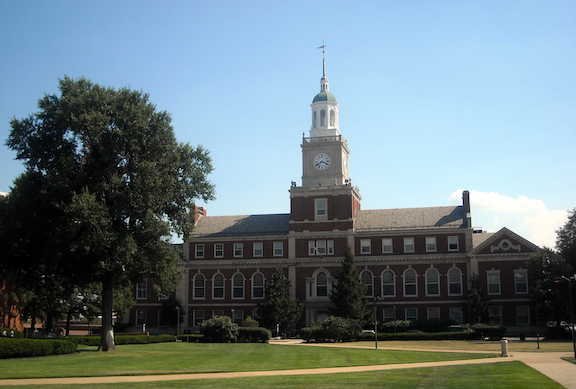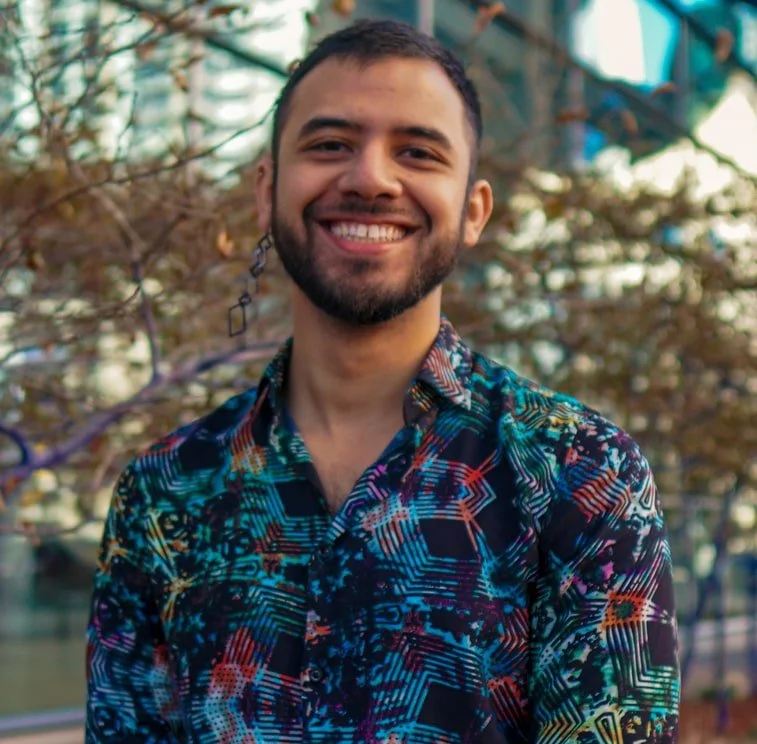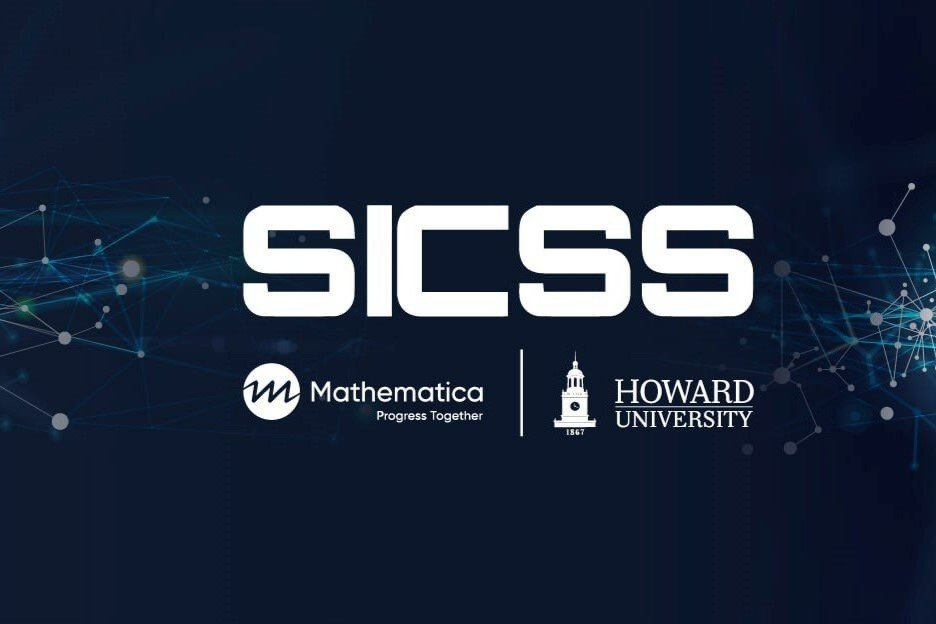The Beauty in Nurturing Communal and Liberating Forms of Computational Social Science
Howard University
This blog is part of a 3-year ongoing series “The Future of Computational Social Science is Black” about SICSS-Howard/ Mathematica, the first Summer Institute in Computational Social Science held at a Historically Black College or University. To learn more about SICSS-H/M’s inaugural start, read the 2021 blog “Welcome SICSS-Howard/ Mathematica 2021” or our first blog “Uncovering new keys to countering anti-Black racism and inequity using computational social science.” If you are interested in applying to participate in SICSS-H/M 2024, check out our website.
Joel and Naniette during Praxis to Power
Naniette Coleman’s incredible and welcoming energy was the first thing I noticed when I entered the virtual room on the first day of SICSS-Howard/Mathematica for the Praxis to Power pre-institute. The second thing was the happy, yet uncertain, look on fellow participants’ faces as they trickled in, the look one carries in a new environment when one is not quite sure what to expect. Little did we know there was nothing to worry about, as we were in great hands for the amazing experience ahead of us.
Across two weeks, the magic of this space really came to life: we learned coding and computational modeling, had various discussions on manifestations of racism across our lives, took space to care for our minds and spirituality as humans, connected with passionate leaders trying to make a change, and designed research projects based on everything we learned - all in the service of countering anti-black racism and inequity.
What struck me as immensely powerful was the ways the space nurtured otherwise and communal calculations. By otherwise calculations, I mean the use of estimation and algorithmic tools in ways not generally intended or imagined. In the hands of SICSS-Howard/Mathematica’s participants, these tools were transformed from mere observational instruments into defensive and intervening weapons against racism. Each proposed project showed a sense of care for the world and for the global Others. We became one potential answer to Achille Mbembe’s urgent inquiry: “As we are increasingly surrounded by multiple and expanding wavefronts of calculation, all we are willing to ask from it is to detect patterns [...] can we turn these new instruments of calculation and power into instruments of liberation? In other words, will we be able to invent different modes of measuring that might open up the possibility of a different aesthetics, a different politics of inhabiting the Earth, of repairing and sharing the planet?” He reminds us that as developing computational social scientists, it is critical to reflect on what traditions, histories, theories, and desires we plug into our quantitative methodology. Our SICSS experience helped demonstrate how these connections transform our data and the effects they can have on the world.
By communal calculations, I mean to highlight not simply that we worked in groups, but also to emphasize the specific composition and spirit of those groups. On any given day, we were in conversation with scholars, activists, and industry and community leaders who spanned countries, disciplines, skill sets, industries, universities, career stages and journeys, and who shared the common goal of building better futures. We all belonged as we were – in this space, in computational social science, in our academic paths. The program consistently reinforced this sense of belonging, and I was awestruck witnessing the beauty and organic nature by which it facilitated such an expansive community. I can’t thank Naniette and the entire SICSS-Howard/Mathematica staff enough for showing us that, however challenging, the work that goes into building this community within computational social science is worthwhile. Fortunately, computational social science appears to be the right hub for this unique dynamic of exchange. It is the one field I have seen where quantitative scientists and humanities scholars come together, not to compete or override each other, but rather to share knowledge and balance or expand on each others’ understanding.
These are the seeds I saw planted at SICSS-Howard/Mathematica, the beginnings of a powerful otherwise, one that calculates in community and orients those calculations in service of justice. I hope spaces like this multiply and extend their reach, because we need them in today’s world.
For more information about SICSS-Howard/Mathematica, check out our website, follow us on Twitter, like us on Facebook, and join our email list. The application for SICSS-Howard/Mathematica 2024 is open! Apply now!
About the authors
Joel E. Martinez is a Postdoctoral Fellow at Harvard University’s Data Science Initiative and Department of Psychology. Joel received their Ph.D. in Psychology and Social Policy from Princeton University. Their work uses data-driven methods to quantify people’s stereotypes and varied understandings of issues within racism, immigration, and sexuality discourses. Joel is a founding member of CUSPP, a community group for undocumented scholars, students, and professionals in the field of psychology. They participated in SICSS-Howard/Mathematica 2023.






